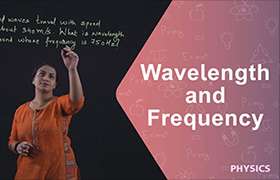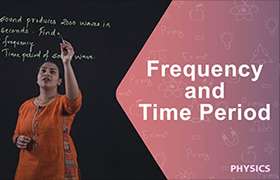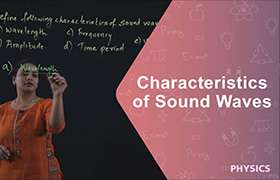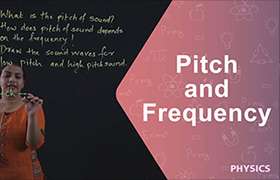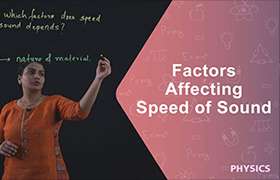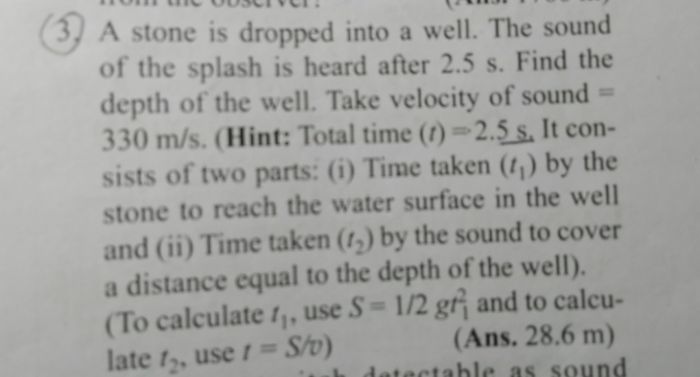CBSE Class 9 Answered
When a sound wave travel from one medium to another its frequency remains unchanged while its wavelength changes. But we know wavelength is indirectly proportional to frequency. So, how could wavelength change but not frequency?
Asked by Ayush Pateria | 29 Jan, 2011, 05:52: PM
Dear student,
As sound waves travel from one medium to another, its speed changes hence the wavelength. The wavelength may become shorter in denser medium like water. The wave's speed v is related to both the frequency f and the wavelength
l : v =
l f.
Combining the above expression for velocity with the definition of index of refraction, we find a relationship between the wavelength l = v/f in a medium and the wavelength l 0 = c/f in vacuum:

In the above equation, the frequencies cancel because frequency does not change as waves moves from one medium to another.
Hope this helps.
Team
Topperelarning.com
Answered by | 29 Jan, 2011, 10:20: PM
Application Videos
Concept Videos
CBSE 9 - Physics
Asked by manaskumarbiswasbrb | 04 Feb, 2023, 08:35: PM
CBSE 9 - Physics
Asked by sm6878261 | 12 Jan, 2023, 07:42: AM
CBSE 9 - Physics
Asked by pooja12366764 | 25 Jan, 2022, 10:46: PM
CBSE 9 - Physics
Asked by ashishyadav | 22 Mar, 2021, 05:20: AM
CBSE 9 - Physics
Asked by Alamglassfebricartion | 16 Mar, 2021, 09:57: AM
CBSE 9 - Physics
Asked by mursaleenmalik1962 | 14 Dec, 2020, 07:18: PM
CBSE 9 - Physics
Asked by dwarakanathan.s | 19 Apr, 2020, 07:02: AM
CBSE 9 - Physics
Asked by upmasoodpassi | 05 Apr, 2020, 11:09: AM

